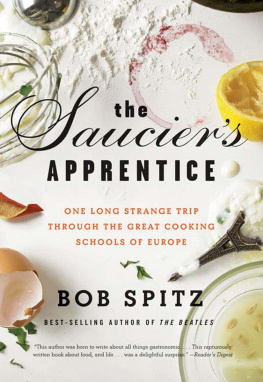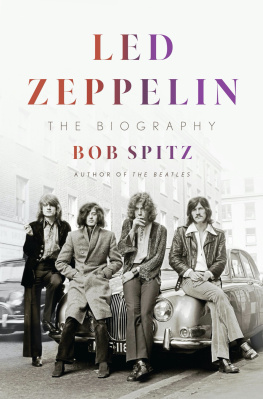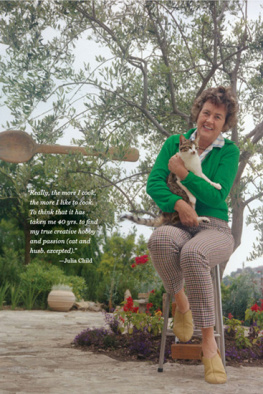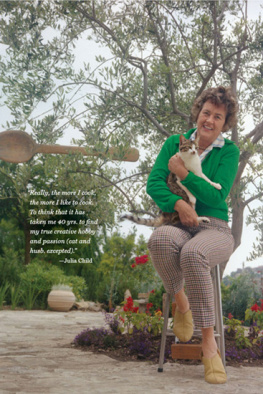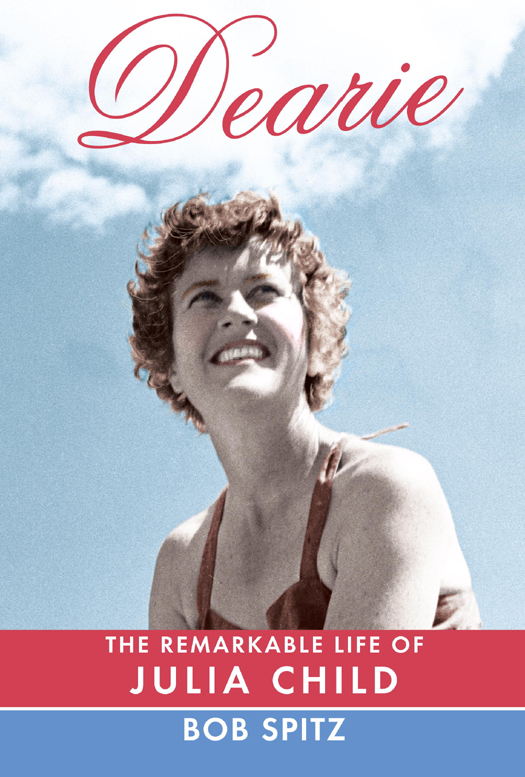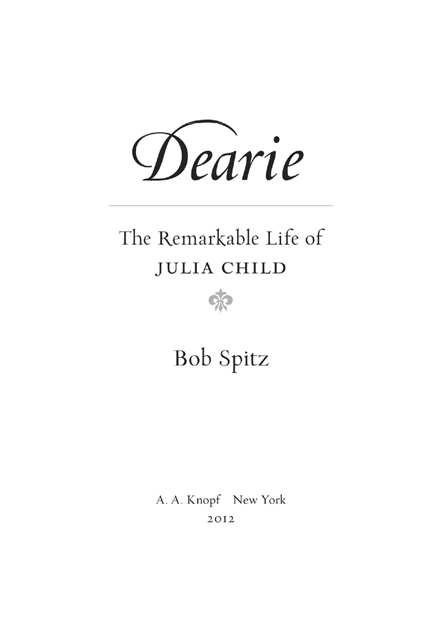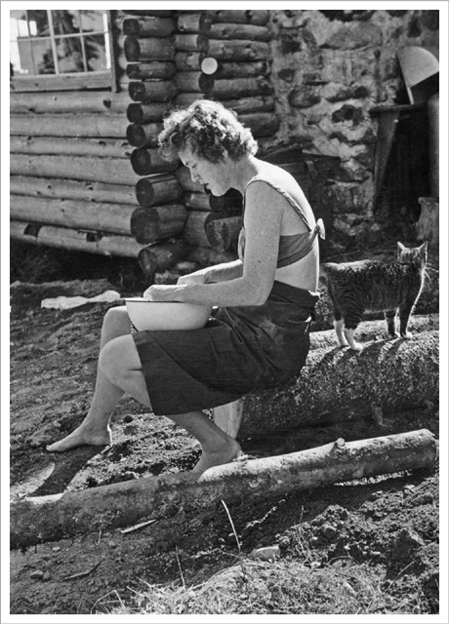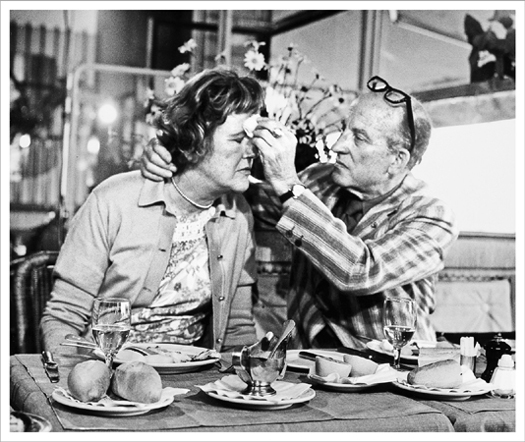
THIS IS A BORZOI BOOK
PUBLISHED BY ALFRED A. KNOPF
Copyright 2012 by Bob Spitz
All rights reserved. Published in the United States by Alfred A. Knopf,a division of Random House, Inc., New York, and in Canada by Random House of Canada Limited, Toronto.
www.aaknopf.com
Knopf, Borzoi Books, and the colophon are registered trademarks of Random House, Inc.
Library of Congress Cataloging-in-Publication Data
Spitz, Bob.
Dearie : the remarkable life of Julia Child / by Bob Spitz.
p cm.
This is a Borzoi book.
Includes bibliographical references and index.
eISBN: 978-0-307-96112-9
1.Child, Julia. 2.CooksFranceBiography. 3. CooksUnited StatesBiography. 4. Cooking, French. I. Title.
TX 649. C 47 S 65 2012
641.5095dc23
[B] 2012019632
Photograph of Julia Child at Lopaus, 1951, by Paul Child.
The Schlesinger Library, Radcliffe Institute, Harvard University
Cover design by Carol Devine Carson
v3.1
Lopaus Point, Maine, July 1951
For my mother,
one of the earliest French Chef groupies,
and
all the mothers who gave up their casseroles
to follow Julias teachings
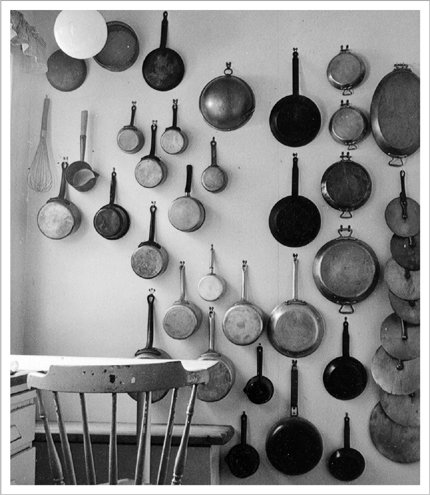
A complete listing of citations and source notes follows the text
and is also available online at www.bobspitz.com/dearienotes.
Paul tends to the star, on the set of The French Chef
Prologue
Boston, MassachusettsFebruary 1962
N ow, dearie, I will require a hot plate for my appearance on Professor Duhamels program.
Russ Morash, who had answered the telephone in a makeshift office he shared with the volunteers at WGBH-TV, was momentarily startled, not so much by the odd request as by the odder voice. It had a quality hed never heard beforetortured and asthmatic, with an undulating lyrical register that spanned two octaves. A womans voice? Yes, he thought, like a cross between Tallulah Bankhead and a slide whistle.
With brusque Yankee economy, Morash tried to decode the callers m.o. You wantwhat?
A hot plate, dearie, so I can make an omelet.
Doesnt that beat all, he thought. A hot plate! An omelet! What kind of a stunt was this gal trying to pull? Morash had worked at the station for a little under four years, and in that time he had heard his share of doozies, but they were workaday doozies, what youd expect to hear at Bostons Educational Television Station. The principal clarinetist for the symphony orchestra needed an emergency reed replacement, a beaker broke during a Science Reporter rehearsal, those were the tribulations that befell such an operation. Buta hot plate and an omelet
Well, from my experience thats a first, Morash told the caller, but Ill be happy to pass it on to Miffy Goodhart, when she gets in.
The twenty-seven-year-old Morash knew that commercial television was in remarkable ascendance; since the end of World War II, it had catered to an enormous, entertainment-starved audience that was hungry for distraction, and creative minds were struggling to feed the greedy beast. But educational TVand WGBH, in particularwas a different creature altogether. Educational TV was an anomaly, a broadcasting stepchild in its infancy, still in the crawling phase, with no real road map for meaningful development. We were kind of making it up as we went along, Morash says of an experiment that was barely six years old. There was tremendous freedom in what we could put on the air. Still, there was nothing exciting about the programs on WGBH. Audiences were as scarce as scintillating programming. A scattering of viewers tuned in to watch Eleanor Roosevelt spar with a panel of wonks; fewer tuned in Friday evenings when a local character, jazz priest Father Norman J. OConnor, introduced musical figures from the Boston area. Otherwise there were no hits to speak of, nothing to attract people to the smorgasbord of brainy fare. The station was licensed through the Lowell Institute to the cultural institutions of Boston: the museum, the libraries, and eleven universities, including Harvard, MIT, Tufts, Boston College, Boston University, and Brandeis. The educational backdrop was a fantastic resource. Each member of the Institute provided support, financial and otherwise. If one of them said, Hey, weve got a great professor. Lets broadcast his lecture, that was enough to launch a new show.
Such was the case with Albert Duhamelmake that P. Albert Duhamelone of Boston Colleges most lionized teachers. Duhamel was a man who loved books and their authors. A suave, strapping academic with a penchant for Harris tweed, he was addicted to the intellectual interplay that came from talking to writers about their work. Al was an author himselfhis steamy Rhetoric: Principles and Usage was a campus blockbusterand his show, People Are Reading, was the tent pole of WGBHs Thursday-night lineup.
People Are Reading was the forerunner to shows like Fresh Air and Charlie Rose, but in those days, with a budget based primarily on the hosts pocket change, books on loan from his personal library, and no such thing as an author tour sponsored by a publisher, it was televisioneducational televisionat the most basic level. Because the dirt-poor station shied from appearance fees, let alone train fare, the authors who appeared came mostly from the Boston area, and to make attracting them easier, guests were usually college colleaguesa noted economist or quantum physicist. Thus, in the words of one WGBH crew member, The shows were dry as toast, but plans were afoot to inject a little jam into the equation.
Morash, who was familiar with the shows static format, realized that People Are Reading, however tedious, served the greater good. For one thing, it was the only book-review show in Bostonthis was long before the days when breakfast television would trot out authors five mornings a weekso there were no other outlets for writers promoting their work. And his neighbors, the university crowd, loved to read. They loved to read. They formed the shows small, faithful audience, creating buzz about any book that happened to catch their fancy.
The guest who had telephoned, Morash imagined, might just throw this gang a curve.
Later that day, when he caught up with Miffy Goodhart, he told her, Miffy, youve got a hot one here this week. Some dame named Julia Child called, and she wants a hot plate, thank you very much. She says shell bring all the other ingredients forget this!an omelet.


